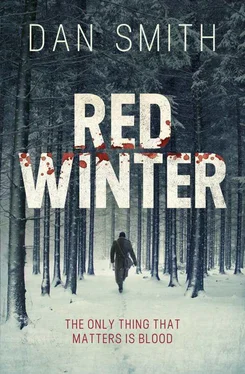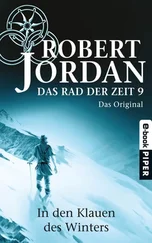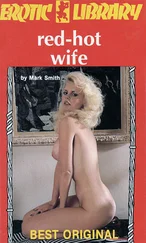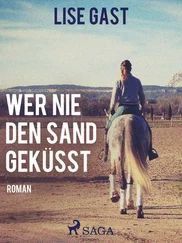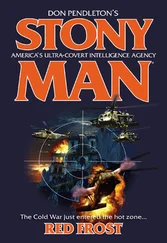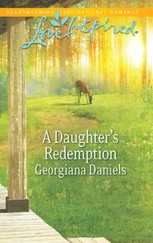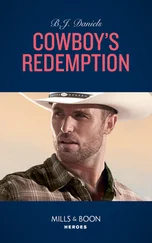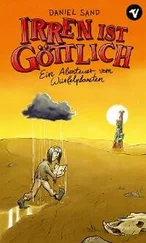I said nothing and glanced at the clock. It was still just after ten, the hands stuck in the position they’d been in when the clock stopped.
‘So have you come to kill me?’ he asked as I picked up the bottle. ‘To give me a good clean death?’
‘No.’
‘Then why are you here?’
‘I’m looking for someone.’ I had to tell him something and perhaps this was the best thing. He might have information I could use.
He made an impatient gesture over the glasses. ‘Pour. Pour.’ When he put his hand down, he studied me with unblinking eyes. ‘Looking for someone? Someone you do want to kill?’
‘Maybe.’ I poured vodka into each glass and pushed one across to him.
Orlov nodded and glanced at the glass but left it where it was. ‘You know, there’s someone I want to kill,’ he said.
I waited for him to go on.
‘We’ve been fighting in Tambov. Trying to put down this damn rebellion.’ He turned the pistol in his hand as if looking for the secrets of life in its design. ‘Returning with the wounded, picking up men along the way.’
‘But you’re heading towards Tambov,’ I said.
Orlov looked up. ‘Excellent observation. And that’s who I want to kill – the man who issued that order. I get this far, bringing my injured men and anyone else who cares to catch a ride with us, and they send new orders. Turn back, they say. They need the train, they say. Drop off the wounded and come back, they say. So I drop them here, in the forest. To die.’ He sniffed hard. ‘What else can I do?’
‘Disobey?’
Orlov waved his hand as if that didn’t deserve a reply. He picked up his glass and raised it to me. ‘The wounded,’ he said.
I toasted with him and took a sip. Orlov drained the glass and indicated I should refill it. He continued to talk as I poured, vodka glistening on his moustache. ‘Did you know that this man Antonov – the one who they say started this peasant uprising – he’s a petty criminal? Put in prison for stealing from railway station offices of all things, and when the revolution pardons him, what does he do but go to war against us.’ Orlov scoffed and shook his head. ‘What a bloody mess. This whole damn country has gone to hell and we can’t even pick our enemies properly. Too many colours to choose from, I say. Tokmakov is the real leader of this uprising, though, a former Imperialist. A decorated soldier, no less.’
Commander Orlov winced in pain and lifted his glass to his lips, stopping as he was about to drink. ‘Damn Imperialists,’ he smiled. ‘I was one myself once.’ He paused for thought. ‘You know the uprising began when some soldiers beat up an old man in Khitrovo?’ he said. ‘I went there and it was just like anywhere else. Just another unimportant town.’
I had been there too, but I didn’t tell Orlov that.
‘As if we don’t have enough trouble with all the other damn armies who want to stop the people’s revolution. This isn’t war; this is chaos. No one knows what the hell is going on. We push the White Army down to Crimea, send Wrangel to the dogs, deal with the Blacks, and now our own people are rising against us. Now we have a Blue Army to fight.’
‘The Whites are defeated?’
‘More or less. Wrangel and his men disappeared into the Black Sea, going to who knows where, and now there’s just all these other colours to finish off – Blue, Green, a whole rainbow of colours – but they might as well all be brown for the shit this country has gone to.’ He seemed pleased with that analogy and smiled to himself before tipping back his head and swallowing the vodka.
‘They say they’re diverting men who are coming back home from Perekop,’ he said, wiping his moustache on his sleeve and looking at me, ‘but they’ll be as useless as the men I’ve just kicked off this train. Every one of them battle-weary or wounded, and I am ordered to leave them here rather than take them to a place where they can be treated, which is what I promised them.’ He nodded at me. ‘Drink.’
I put the glass to my lips and sipped again.
‘All of it. Drink it all,’ he said, so I drained the glass and put it down beside his.
‘More.’ Orlov waved the pistol in my direction.
When I had refilled the glasses, he fell into a sombre silence, shaking his head every now and then, staring at the pistol. Outside, the sounds of the men had settled. No more orders were shouted. There was only the occasional voice that lifted above the constant murmur and moan.
I watched Orlov, wondering if now was the time for me to leave. He was so deep in thought I might have been able to slip from the carriage without him noticing. Or perhaps I could get to my knife and put an end to him, but I realised I had no reason to want to harm him. He had done nothing to me. He was a wounded commander trying to do his job, and it was refreshing to see the remorse he felt at having to leave his men to die. It would take huge courage for him to defy his orders, and looking at the state of the men outside, many of them would be dead before long anyway.
‘Nikolai Levitsky.’ The words came at me like a slap. It was the second time today that someone had spoken my name and I missed a breath, my hand tightening round the glass, some of it spilling over and running through my fist.
‘Nikolai Levitsky,’ he said again, this time turning his head to stare at me. ‘You’ve heard of him?’ He looked me up and down as if assessing me with new interest.
‘No.’
‘A hero of the revolution. Recipient of the Order of the Red Banner.’ Orlov shifted in his chair, pushing himself up a little straighter. ‘He was an Imperialist, just like me, but after the war with the Germans, he joined the Red Army and—’
‘Why are you telling me this?’
Orlov shrugged. ‘Not much longer than a month ago, Nikolai Levitsky and three men fought three hundred attackers in the village of Grivino. Armed with just their Mosin-Nagant rifles, they held the Blues back until reinforcements arrived. Earned himself the Order of the Red Banner. Now that’s a hero,’ Orlov said. ‘Fighting for the people. Not like this man Tokmakov, leading his peasants against the revolution.’
It hadn’t been that way, though. We hadn’t been fighting for the people; we had been fighting for our lives. And there hadn’t been three of us; there had been ten, including my brother, Alek. And we had a tachanka . Peasants with a few rifles and pitchforks were no match for trained soldiers with good weapons and a horse-drawn machine gun. We gave them a chance to surrender, but they refused, so we gunned down every man, woman or boy they sent at us. Not three hundred, though; there can’t have been more than a hundred and fifty. And there were no reinforcements coming to help us; we didn’t need them. The battle lasted no longer than twenty minutes before the peasants finally saw the futility of their attacks and scattered back into the forest around Grivino. We didn’t follow them in, but sent a few gas grenades into the trees to finish off any stragglers.
Only one of us died in that battle, and that was because his own rifle exploded, the barrel fragmenting and firing a piece of shrapnel into his head. But the real story was no inspiration to Bolshevik soldiers. They needed heroes, not men who slaughtered women and children. So the propaganda machine changed our story and put medals on our chests, right over our heavy hearts, and the more I had thought about it, the more ashamed I grew. It had been a burden to my brother too. He never spoke of it, but I had seen it every day in his eyes.
‘You know, they say Levitsky was killed in Ulyanov. Ambushed by guerrillas and shot dead. Left in a ditch with his face smashed in.’
Читать дальше
